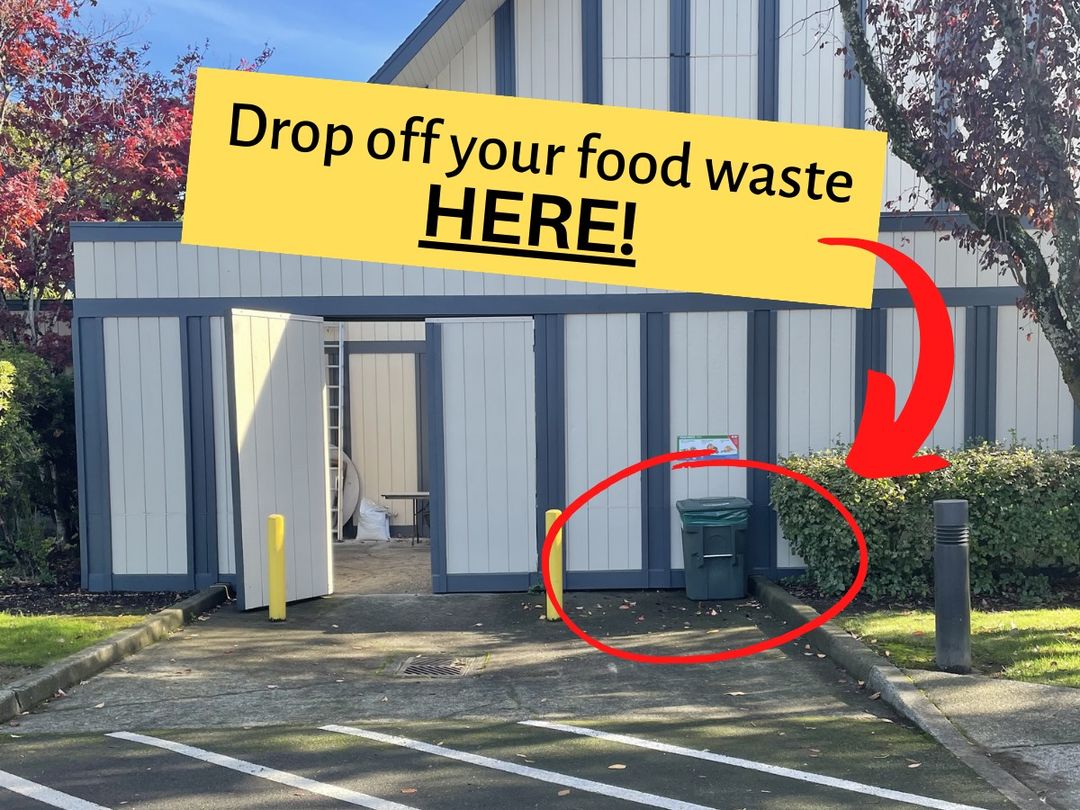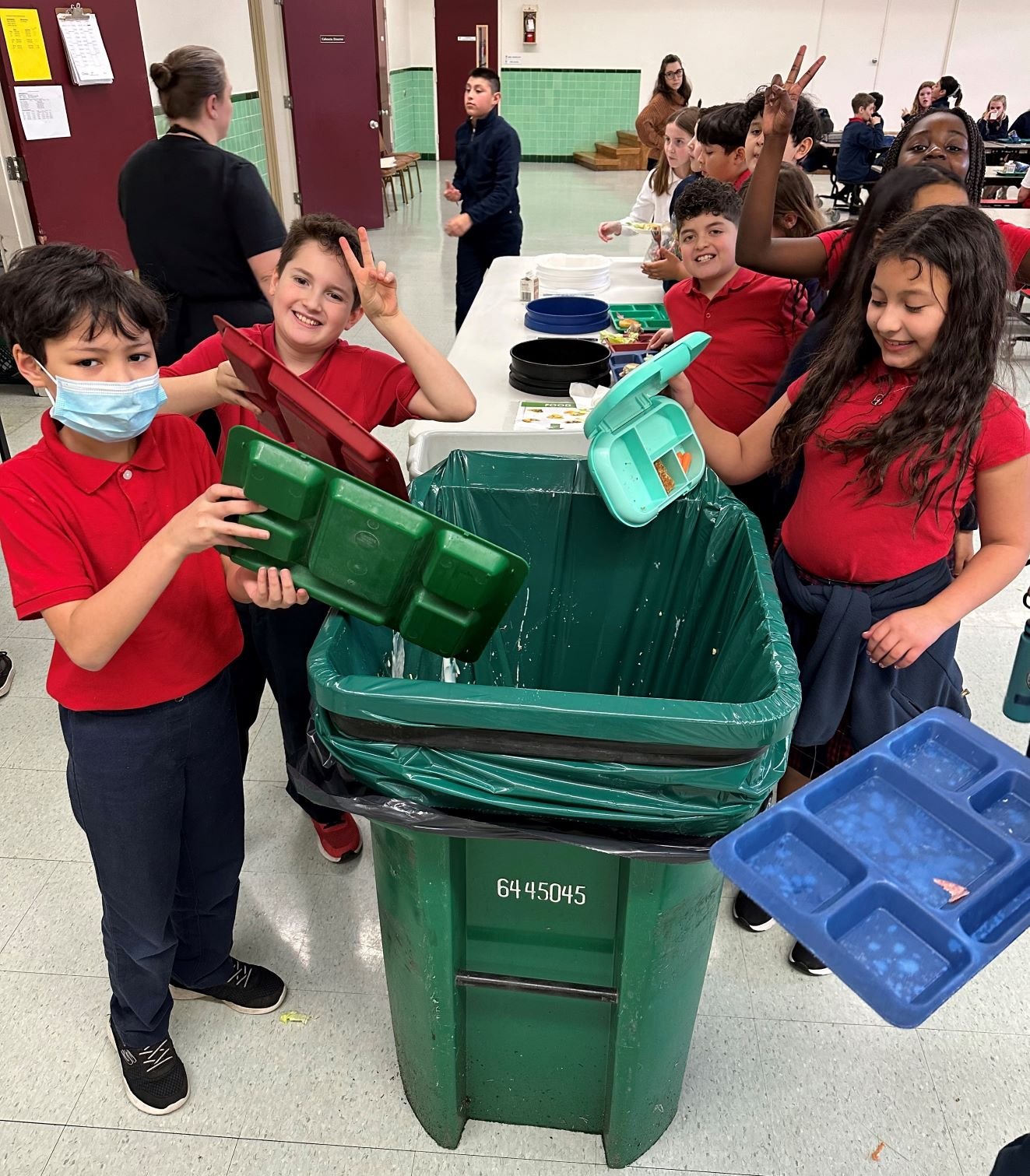VANCOUVER — When Carol Eikenberry goes to Mass at St. Joseph Church, she brings along the small food scraps bin kept under the kitchen sink in her condo.
After Mass, she returns to her car to retrieve the bin — filled with things like banana peels and coffee grounds — and dump it into the parish’s outdoor compost container, part of the Congregation to Compost program in Clark County.
“It’s easy, and I like the idea of not putting all that stuff into the landfill or into the sewer system,” said Eikenberry, who has been a St. Joseph parishioner for 25 years.
The partnership with faith-based organizations is part of Clark County’s effort to “to keep valuable nutrients out of the landfill and transform them into richer, healthy soil, according to the Congregation to Compost website.
Although some parishioners may already compost at home, Eikenberry’s condo complex doesn’t offer composting. So having Congregation to Compost available at church is not just practical, but “it is saving the planet in my own little, small way,” Eikenberry said.
More than 50 families participate
Eikenberry is among more than 50 parish families now participating in the Congregation to Compost program that was launched with the help of parishioner Linda Jo Devlaeminck. She is a member of the parish’s life, justice and peace commission and is the current staff person for those areas of ministry.
“I helped get it set up because I’m passionate about caring for our world,” Devlaeminck said. “Ecology and Laudato Si’ is really important to me,” she said of Pope Francis’ 2015 encyclical “Laudato Si’: On Care for our Common Home.”
Representatives from Congregation to Compost first came to St. Joseph in 2022 to set up and promote the program, Devlaeminck said.
“They came and talked at all the Masses and passed out (food scrap) buckets,” she said.

Now the parish has a large compost container and “everything on campus goes in there,” including compostable material from the office, the school, funeral lunches and other parish events, she explained. Parishioners who have one of the buckets at home can put their kitchen scraps in it, then dump it into the large container at St. Joseph, which is emptied about once a week, Devlaeminck said.
“I am so excited that we as a parish can have an impact on caring for our world and that we care about God’s creation enough to do concrete things, even if it’s just a small piece,” she said. “This doesn’t have a huge impact on the world, it doesn’t stop global warming, it doesn’t stop climate change, but it is a small piece that we can do.”
Students take sorting trash seriously
The parish school also composts, something it has been doing for at least 10 years, said Eileen Sherrill, communications director.
Today the school has 415 students in grades K-8 and 72 in the preschool program, Sherill said.

When students finish lunch, they pour any leftover milk into a waste contained, put dry waste into the garbage and put compostable materials into the cafeteria’s 64-gallon bin, Sherrill said. Roughly 16-20 gallons of compostables are properly discarded each day, she added.
Kindergartners and new students are trained in the process for clearing off their lunch trays into the proper bins, Sherrill added.
And the students monitor each other.
“They take it seriously. They’re excited about it,” Sherrill said.
And if anyone inadvertently drops paper into the compostable bin, “we have a little set of tongs” to pull it out and properly dispose of it, she added.
Congregation to Compost representatives have come to the school to give away compost pails to interested parents. Sherrill said she knows of 10 or 15 families who are now composting at home through the program.
Devlaeminck said the program isn’t just good for the environment, but it also is a way to build unity.
“Any time we do something together as the Body of Christ or together as church, it helps us recognize the unity that we have with each other,” she said. “We’re not only doing something for the earth, we’re doing something for one another.”